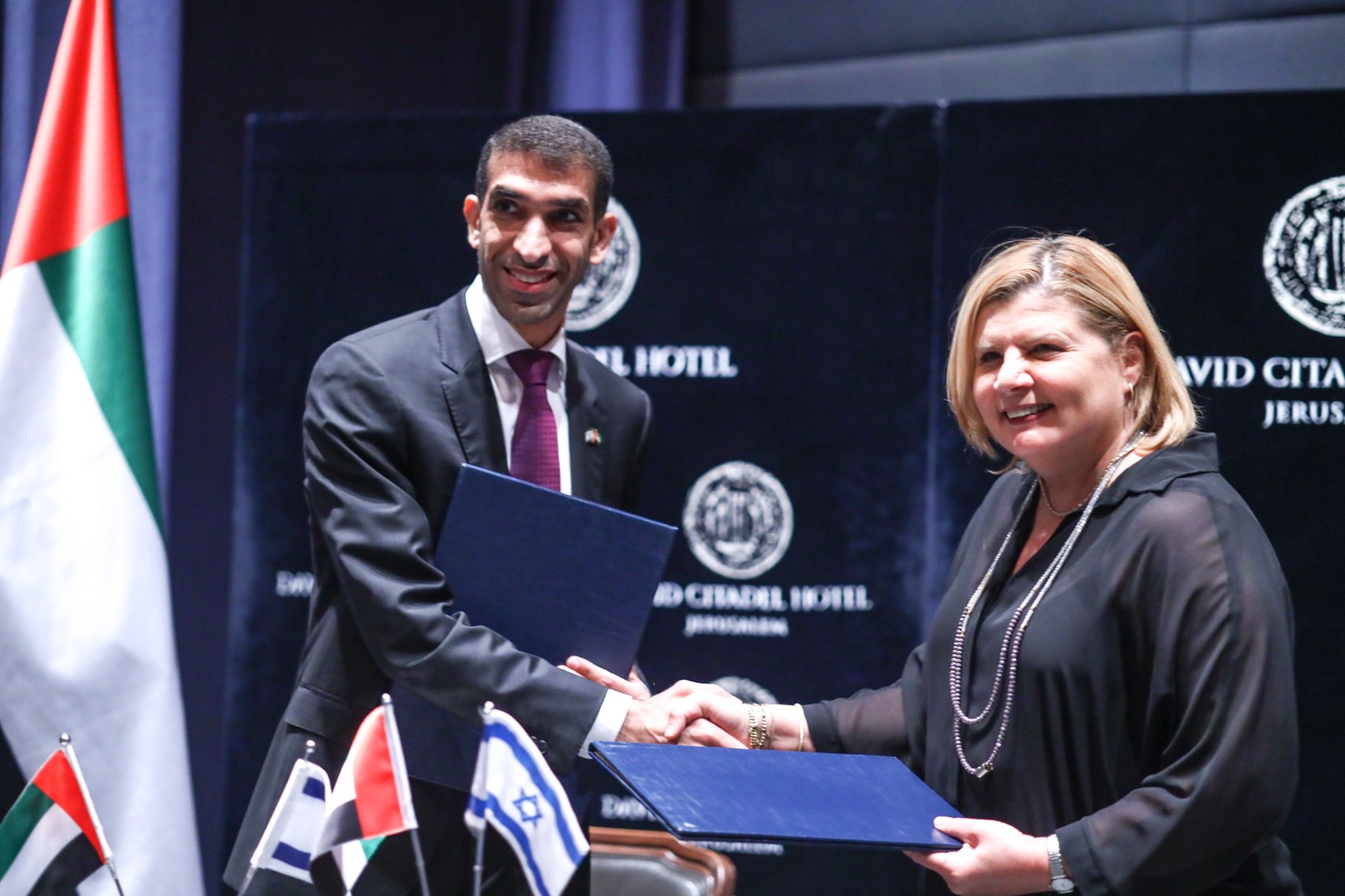(April 3, 2022 / JNS) Israel and the United Arab Emirates announced on Friday the conclusion of negotiations on a historic and comprehensive bilateral free trade agreement.
The agreement, brokered by Economy and Industry Minister Orna Barbivay and UAE Minister of State for Foreign Trade Dr. Thani bin Ahmed Al Zeyoudi, is the first comprehensive free trade agreement between Israel and an Arab country, according to the Ministry of Economy and Industry.
The agreement is “comprehensive and meaningful” and includes issues such as “trade in goods such as regulations and standards, customs, trade in services, cooperation, government procurement, e-commerce and maintenance of brands,” the Israeli Prime Minister’s Office said in a statement. .
“Ninety-five percent of the goods traded between the two countries are included in the agreement and will be exempt from customs immediately or gradually: food products, agriculture, cosmetics, medical equipment, medicines, etc.,” the statement continued.
Israeli Prime Minister Naftali Bennett called the conclusion of the negotiations “an important moment in relations between the State of Israel and the United Arab Emirates”.
The deal, he said, will “significantly improve” economic cooperation between Israel and the UAE, strengthening the “good relations that have already been forged between the two countries.”
Barbivay called the completion of negotiations a “historic milestone”.
“Since the establishment of the Abraham Accords, the Ministry of Economy and Industry has worked to expand economic relations between Israel and the UAE and to fully utilize their economic potential. The conclusion of the negotiations is an important and historic milestone in bilateral relations,” she said.
The Abraham Accords, which were signed in September 2020, are the basis of diplomatic relations between the State of Israel and the United Arab Emirates. A year later, in November 2021, negotiations began on a bilateral free trade agreement and continued for five months.
The issue was discussed by Bennett and Crown Prince Mohammed bin Zayed in Abu Dhabi last December, when it was agreed to expedite contacts ahead of the signing, and at their meeting in Egypt last week, where leaders agreed to close the deal within days. .
According to the statement of the Ministry of Economy and Industry, “Relations between Israel and the United Arab Emirates have great economic potential in various fields due, among other things, to the geographical and cultural proximity between the peoples and the unique characteristics of the United Arab Emirates, which has the second largest economy in the Arab world after Saudi Arabia and an import market worth hundreds of billions of dollars with technological goods and advanced solutions in which Israel has a comparative advantage constituting a considerable part.
Since the signing of the Abraham Accords, trade between the two countries has increased, reaching nearly $900 million in 2020, the statement continued.
“The potential for exchanges between the two economies is much greater and includes many areas such as energy, health, digitalization, medical equipment, water (desalination, purification, conservation and intelligent management), l ‘Agriculture, Cyber, Fintech and Diamond Exports’.
The agreement will now be “assessed from a legal point of view” before being signed by ministers and ratified by each country, after which it will come into force, according to the press release.

